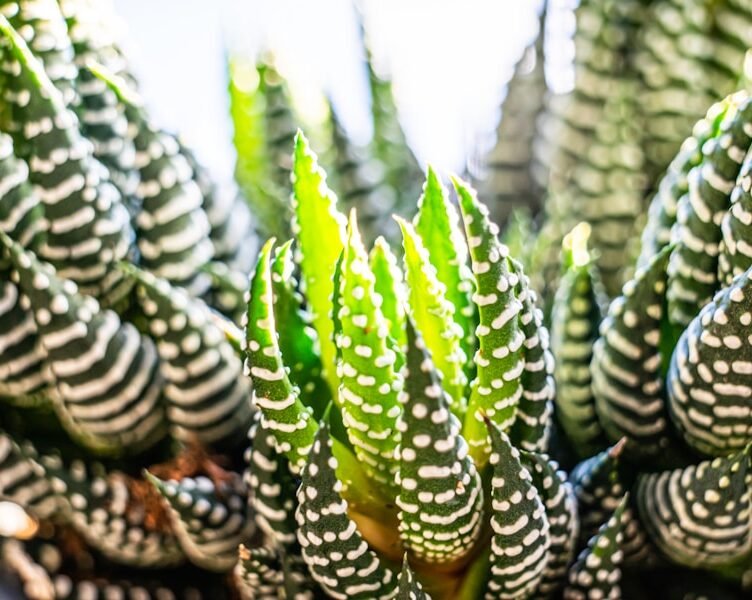Indoor plants have been proven to have a profound impact on mental health, with benefits including reduced stress and anxiety levels. Scientific research has demonstrated that merely being in the presence of plants can have a calming effect on the mind, leading to lower blood pressure and decreased feelings of stress. Furthermore, the act of nurturing indoor plants can provide individuals with a sense of purpose and accomplishment, which can be particularly beneficial for those struggling with anxiety or depression.
The presence of indoor plants also improves air quality, which has a positive effect on overall well-being. The benefits of indoor plants on mental health are substantial, making them a valuable addition to any home or workspace. In addition to their physical advantages, indoor plants have been shown to have a positive impact on mental health.
Studies have consistently demonstrated that being around plants can improve mood and reduce feelings of anxiety and depression. The presence of greenery indoors can create a sense of calm and tranquility, which is particularly beneficial for individuals dealing with high levels of stress. In fact, research has suggested that indoor plants can even improve cognitive function and concentration, making them a valuable addition to any environment where focus and productivity are essential.
Key Takeaways
- Indoor plants can help reduce stress and anxiety by creating a calming environment and improving mental health.
- The presence of indoor plants can have a positive psychological impact, leading to stress reduction and anxiety relief.
- Choosing the right indoor plants, such as lavender, jasmine, and aloe vera, can maximize their stress-reducing benefits.
- Incorporating indoor plants into your self-care routine can further enhance their ability to reduce stress and anxiety.
- Proper care and maintenance of indoor plants is essential to ensure they continue to provide stress-relieving benefits.
How Indoor Plants Create a Calming Environment
Improving Air Quality and Overall Well-being
In addition to their mental health benefits, indoor plants can also help to improve air quality, which can have a positive impact on overall well-being. Overall, the benefits of indoor plants for mental health are significant, making them a valuable addition to any home or workspace.
The Positive Impact on Mental Health
Studies have shown that being around plants can help to improve mood and reduce feelings of anxiety and depression. The presence of greenery indoors can create a sense of calm and tranquility, which can be especially beneficial for those dealing with high levels of stress.
Boosting Cognitive Function and Productivity
In fact, some research has even suggested that the presence of indoor plants can help to improve cognitive function and concentration, making them a valuable addition to any environment where focus and productivity are important.
The Role of Indoor Plants in Stress Reduction
Indoor plants play a crucial role in stress reduction by creating a calming environment that promotes relaxation and well-being. The presence of greenery indoors has been shown to have a positive impact on mental health, helping to reduce feelings of stress and anxiety. In addition, the act of caring for indoor plants can provide a sense of purpose and accomplishment, which can be especially beneficial for those struggling with anxiety or depression.
The presence of indoor plants can also help to improve air quality, which can have a positive impact on overall well-being. Overall, the benefits of indoor plants for mental health are significant, making them a valuable addition to any home or workspace. In addition to their physical benefits, indoor plants can also have a positive impact on mental health.
Studies have shown that being around plants can help to improve mood and reduce feelings of anxiety and depression. The presence of greenery indoors can create a sense of calm and tranquility, which can be especially beneficial for those dealing with high levels of stress. In fact, some research has even suggested that the presence of indoor plants can help to improve cognitive function and concentration, making them a valuable addition to any environment where focus and productivity are important.
The Psychological Impact of Indoor Greenery
| Benefits of Indoor Plants | Effects on Stress and Anxiety |
|---|---|
| Improves air quality | Reduces stress by providing cleaner air to breathe |
| Enhances mood | Creates a calming and soothing environment |
| Reduces fatigue | Increases energy levels and reduces feelings of tiredness |
| Promotes relaxation | Helps in lowering blood pressure and heart rate |
| Increases productivity | Improves focus and concentration, reducing anxiety levels |
The psychological impact of indoor greenery is significant, with numerous studies showing that being around plants can have a positive effect on mental health. The presence of greenery indoors has been shown to reduce feelings of stress and anxiety, creating a calming environment that promotes relaxation and well-being. In addition, the act of caring for indoor plants can provide a sense of purpose and accomplishment, which can be especially beneficial for those struggling with anxiety or depression.
The presence of indoor plants can also help to improve air quality, which can have a positive impact on overall well-being. Overall, the psychological impact of indoor greenery is significant, making it a valuable addition to any home or workspace. In addition to their physical benefits, indoor plants can also have a positive impact on mental health.
Studies have shown that being around plants can help to improve mood and reduce feelings of anxiety and depression. The presence of greenery indoors can create a sense of calm and tranquility, which can be especially beneficial for those dealing with high levels of stress. In fact, some research has even suggested that the presence of indoor plants can help to improve cognitive function and concentration, making them a valuable addition to any environment where focus and productivity are important.
Choosing the Right Indoor Plants for Anxiety Relief
When it comes to choosing the right indoor plants for anxiety relief, there are several factors to consider. First and foremost, it’s important to choose plants that are easy to care for and well-suited to the environment in which they will be placed. Low-maintenance plants such as snake plants, pothos, and peace lilies are all excellent choices for those looking to incorporate greenery into their home or workspace without adding extra stress to their lives.
In addition, it’s important to consider the specific needs of the individual when choosing indoor plants for anxiety relief. Some people may find that certain types of plants have a particularly calming effect on them, so it’s important to take personal preferences into account when selecting greenery for stress reduction. In addition to choosing the right types of plants, it’s also important to consider the placement of indoor greenery when using it for anxiety relief.
Placing plants in areas where they will be easily visible and accessible can help to maximize their stress-reducing benefits. For example, placing a small collection of succulents on a desk or windowsill where they can be easily seen and cared for throughout the day can provide a constant source of calm and relaxation. Similarly, placing larger plants such as fiddle leaf figs or rubber trees in areas where they will be frequently seen and enjoyed can help to create a calming environment that promotes well-being.
Incorporating Indoor Plants into Your Self-Care Routine
The Therapeutic Benefits of Caring for Indoor Plants
Caring for indoor plants can be a powerful tool in managing anxiety and depression. The simple act of watering, pruning, and nurturing your plants can provide a much-needed break from the stresses of daily life, allowing you to focus on something positive and uplifting. This sense of purpose and accomplishment can be especially beneficial for those struggling with mental health issues.
The Calming Effects of Being Around Plants
In addition to the benefits of caring for plants, simply being around them has been shown to have a calming effect on the mind. Studies have found that being around plants can help lower blood pressure, reduce feelings of stress, and improve mood. This can be especially beneficial for those dealing with high levels of stress and anxiety.
Improving Cognitive Function and Productivity
The benefits of indoor plants don’t stop there. Research has also suggested that the presence of plants can improve cognitive function and concentration, making them a valuable addition to any environment where focus and productivity are important. By incorporating indoor plants into your self-care routine, you can create a calming and productive environment that promotes relaxation, wellbeing, and success.
Tips for Caring for Indoor Plants to Maximize Stress-Reducing Benefits
Caring for indoor plants is an excellent way to maximize their stress-reducing benefits. By taking the time to water, prune, and care for your indoor greenery, you can create a calming environment that promotes relaxation and well-being. In addition, the act of caring for indoor plants can provide a sense of purpose and accomplishment, which can be especially beneficial for those struggling with anxiety or depression.
To maximize the stress-reducing benefits of caring for indoor plants, it’s important to choose varieties that are well-suited to your environment and lifestyle. Low-maintenance plants such as snake plants, pothos, and peace lilies are all excellent choices for those looking to incorporate greenery into their self-care routine without adding extra stress to their lives. In addition to choosing the right types of plants, it’s also important to consider the specific needs of your indoor greenery when caring for them.
Different types of plants have different requirements when it comes to watering, light exposure, and temperature, so it’s important to take these factors into account when caring for your indoor greenery. By providing your plants with the proper care and attention they need, you can ensure that they thrive and provide you with maximum stress-reducing benefits. Overall, caring for indoor plants is an excellent way to incorporate nature into your self-care routine while promoting relaxation and well-being.
In conclusion, indoor plants have numerous benefits for mental health, including reducing stress and anxiety. The presence of greenery indoors has been shown to create a calming environment that promotes relaxation and well-being while improving air quality. By choosing the right types of plants and incorporating them into your self-care routine through proper care and placement, you can maximize their stress-reducing benefits while creating a tranquil environment in your home or workspace.
Overall, the psychological impact of indoor greenery is significant, making it a valuable addition to any environment where focus and productivity are important.
FAQs
What are indoor plants?
Indoor plants are plants that are grown and kept inside buildings, typically for decorative purposes.
How do indoor plants help reduce stress and anxiety?
Indoor plants have been shown to have a calming effect on people, which can help reduce stress and anxiety. They can improve air quality, provide a connection to nature, and create a sense of tranquility.
What are some indoor plants that are known for their stress-reducing properties?
Some indoor plants that are known for their stress-reducing properties include lavender, jasmine, aloe vera, snake plant, and peace lily.
How do indoor plants improve air quality?
Indoor plants can improve air quality by absorbing carbon dioxide and releasing oxygen through the process of photosynthesis. They can also remove toxins from the air, such as formaldehyde and benzene.
What are some tips for incorporating indoor plants into a living or working space?
Some tips for incorporating indoor plants into a living or working space include choosing plants that are easy to care for, placing them in well-lit areas, and selecting pots and planters that complement the decor of the space.
Are there any potential drawbacks to having indoor plants?
Some potential drawbacks to having indoor plants include the risk of overwatering or underwatering, the potential for allergic reactions to certain plants, and the need for regular maintenance and care.


